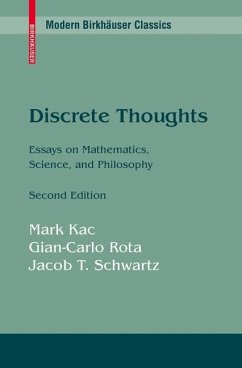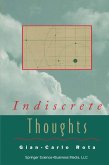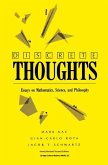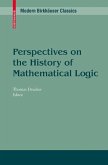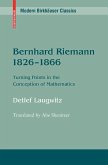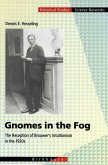as anywhere today, it is becoming more d- ficult to tell the truth. To be sure, our store of accurate facts is more plentiful now than it has ever been, and the minutest details of history are being thoroughly recorded. Scientists, - men and scholars vie with each other in publishing excruciatingly definitive accounts of all that happens on the natural, political and historical scenes. Unfortunately, telling the truth is not quite the same thing as reciting a rosary of facts. Jos6 Ortega y Gasset, in an adm- able lesson summarized by Antonio Machado's three-line poem, prophetically warned us that the reason people so often lie is that they lack imagination: they don't realize that the truth, too, is a matter of invention. Sometime, in a future that is knocking at our door, we shall have to retrain ourselves or our children to properly tell the truth. The exercise will be particularly painful in mathematics. The enrapturing discoveries of our field systematically conceal, like footprints erased in the sand, the analogical train of thought that is the authentic life of mathematics. Shocking as it may be to a conservative logician, the day will come when currently MATHEMATICS, IN vague concepts such as motivation and purpose will be made formal and accepted as constituents of a revamped logic, where they will at last be allotted the equal status they deserve, si- by-side with axioms and theorems.
Hinweis: Dieser Artikel kann nur an eine deutsche Lieferadresse ausgeliefert werden.
Hinweis: Dieser Artikel kann nur an eine deutsche Lieferadresse ausgeliefert werden.
"...These papers reflect on mathematics and its influence on human society. They can help the specialist to notice what is going on around him, and they may lead educated people from other domains to a better understanding of mathematics. Many of these papers can advise educators how to form a modern mathematics education, which develops approved ideas and institutions...I admire the stimulating perspectives of the authors"
--American Mathematical Society
--American Mathematical Society
From the reviews of the second edition:
"...These papers reflect on mathematics and its influence on human society. They can help the specialist to notice what is going on around him, and they may lead educated people from other domains to a better understanding of mathematics. Many of these papers can advise educators how to form a modern mathematics education, which develops approved ideas and institutions...I admire the stimulating perspectives of the authors"
--American Mathematical Society
"Kac, Rota, and Schwartz have collected here: occasional essays about mathematics, mathematicians, and surrounding subjects. ... The essays are fun to read, light in manner but serious in content. Many of them are provocative. ... As a result, the book would make wonderful fodder for a reading course or seminar. ... Discrete Thoughts is a classic indeed." (Fernando Q. Gouvêa, MathDL, January, 2008)
"...These papers reflect on mathematics and its influence on human society. They can help the specialist to notice what is going on around him, and they may lead educated people from other domains to a better understanding of mathematics. Many of these papers can advise educators how to form a modern mathematics education, which develops approved ideas and institutions...I admire the stimulating perspectives of the authors"
--American Mathematical Society
"Kac, Rota, and Schwartz have collected here: occasional essays about mathematics, mathematicians, and surrounding subjects. ... The essays are fun to read, light in manner but serious in content. Many of them are provocative. ... As a result, the book would make wonderful fodder for a reading course or seminar. ... Discrete Thoughts is a classic indeed." (Fernando Q. Gouvêa, MathDL, January, 2008)

